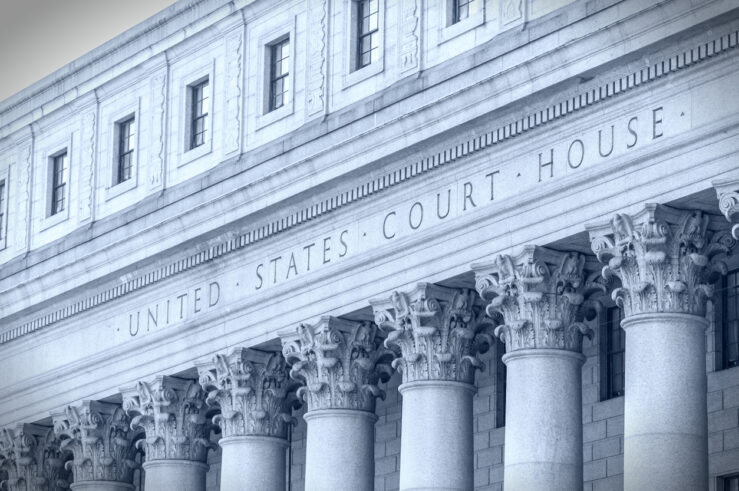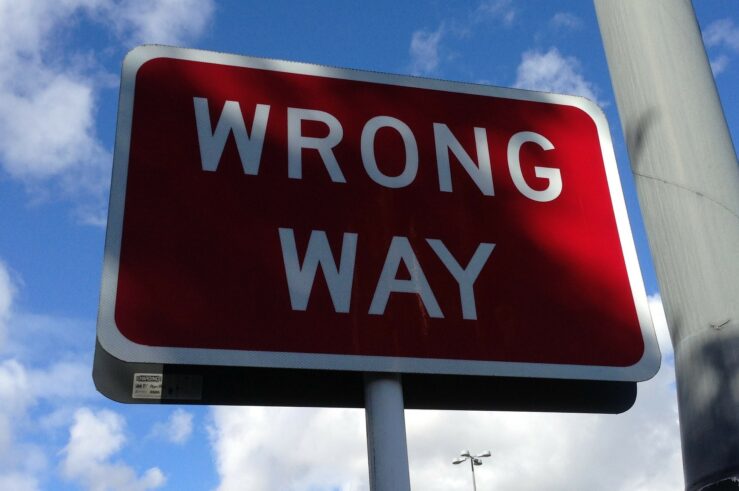Showing archive for: “Barriers to Entry”
Application of the Proper ‘Outer Boundary’ of Antitrust Liability for Alleged Refusals to Deal in New York v Facebook
Introduction The States brought an antitrust complaint against Facebook alleging that various conduct violated Section 2 of the Sherman Act. The ICLE brief addresses the States’ allegations that Facebook refused to provide access to an input, a set of application-programming interfaces that developers use in order to access Facebook’s network of social-media users (Facebook’s Platform), ... Application of the Proper ‘Outer Boundary’ of Antitrust Liability for Alleged Refusals to Deal in New York v Facebook
Judge Ginsburg: On the Proposed Digital Markets Unit and the UK’s Competition and Markets Authority
Thank you, Victoria, for the invitation to respond to Mr. Coscelli and his proposal for a legislatively founded Digital Markets Unit. Mr. Coscelli is one of the most talented, successful, and creative heads a competition agency has ever had. In the case of the DMU [ed., Digital Markets Unit], however, I think he has let ... Judge Ginsburg: On the Proposed Digital Markets Unit and the UK’s Competition and Markets Authority
The Contestable Platform Paradox
Why do digital industries routinely lead to one company having a very large share of the market (at least if one defines markets narrowly)? To anyone familiar with competition policy discussions, the answer might seem obvious: network effects, scale-related economies, and other barriers to entry lead to winner-take-all dynamics in platform industries. Accordingly, it is ... The Contestable Platform Paradox
Is There Any Market Power in Online Display Advertising?
A lawsuit filed by the State of Texas and nine other states in December 2020 alleges, among other things, that Google has engaged in anticompetitive conduct related to its online display-advertising business. Broadly, the Texas complaint (previously discussed in this TOTM symposium) alleges that Google possesses market power in ad-buying tools and in search, illustrated ... Is There Any Market Power in Online Display Advertising?
Antitrust Dystopia and Antitrust Nostalgia
The dystopian novel is a powerful literary genre. It has given us such masterpieces as Nineteen Eighty-Four, Brave New World, and Fahrenheit 451. Though these novels often shed light on the risks of contemporary society and the zeitgeist of the era in which they were written, they also almost always systematically overshoot the mark (intentionally ... Antitrust Dystopia and Antitrust Nostalgia
Old Ideas and the New New Deal
Over the past decade and a half, virtually every branch of the federal government has taken steps to weaken the patent system. As reflected in President Joe Biden’s July 2021 executive order, these restraints on patent enforcement are now being coupled with antitrust policies that, in large part, adopt a “big is bad” approach in ... Old Ideas and the New New Deal
A First Glance at the Biden Executive Order on Competition: The Good and the Bad (Including Much that Looks Ugly)
The Biden Administration’s July 9 Executive Order on Promoting Competition in the American Economy is very much a mixed bag—some positive aspects, but many negative ones. It will have some positive effects on economic welfare, to the extent it succeeds in lifting artificial barriers to competition that harm consumers and workers—such as allowing direct sales ... A First Glance at the Biden Executive Order on Competition: The Good and the Bad (Including Much that Looks Ugly)
Build Broadband Better: Focus on Competition, Not Competitors
President Joe Biden named his post-COVID-19 agenda “Build Back Better,” but his proposals to prioritize support for government-run broadband service “with less pressure to turn profits” and to “reduce Internet prices for all Americans” will slow broadband deployment and leave taxpayers with an enormous bill. Policymakers should pay particular heed to this danger, amid news ... Build Broadband Better: Focus on Competition, Not Competitors
The Virtues and Pitfalls of Economic Models
Interrogations concerning the role that economic theory should play in policy decisions are nothing new. Milton Friedman famously drew a distinction between “positive” and “normative” economics, notably arguing that theoretical models were valuable, despite their unrealistic assumptions. Kenneth Arrow and Gerard Debreu’s highly theoretical work on General Equilibrium Theory is widely acknowledged as one of ... The Virtues and Pitfalls of Economic Models
The FTC Did Not ‘Fumble the Future’ in Its Google Search Investigation
Politico has released a cache of confidential Federal Trade Commission (FTC) documents in connection with a series of articles on the commission’s antitrust probe into Google Search a decade ago. The headline of the first piece in the series argues the FTC “fumbled the future” by failing to follow through on staff recommendations to pursue ... The FTC Did Not ‘Fumble the Future’ in Its Google Search Investigation
Investors and Regulators Can Both Fall for Platform Bubbles
In current discussions of technology markets, few words are heard more often than “platform.” Initial public offering (IPO) prospectuses use “platform” to describe a service that is bound to dominate a digital market. Antitrust regulators use “platform” to describe a service that dominates a digital market or threatens to do so. In either case, “platform” denotes power ... Investors and Regulators Can Both Fall for Platform Bubbles
The NCAA: Dr Jekyll or Mr Hyde?
The U.S. Supreme Court will hear a challenge next month to the 9th U.S. Circuit Court of Appeals’ 2020 decision in NCAA v. Alston. Alston affirmed a district court decision that enjoined the National Collegiate Athletic Association (NCAA) from enforcing rules that restrict the education-related benefits its member institutions may offer students who play Football ... The NCAA: Dr Jekyll or Mr Hyde?













